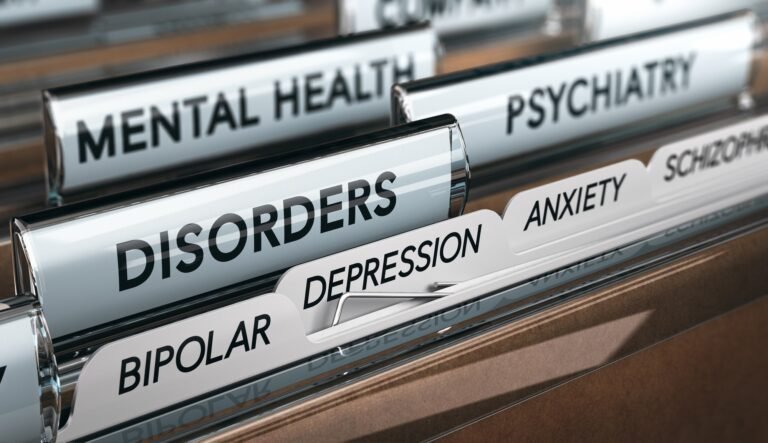There comes a point where feeling nothing starts to hurt more than feeling everything. For some, that’s the moment they know something has to change. Numb isn’t peace. It’s just silence where real emotions used to be. And when drugs like heroin are involved, that silence can last a long time—even when everything on the outside looks fine.
Real recovery doesn’t start with pretending everything’s okay. It starts with finally being honest, even if it’s messy. Getting better doesn’t mean going back to who you were before. It means learning how to live without needing something to shut it all off.
Heroin Numbs More Than Pain
Heroin isn’t just about chasing a high—it’s about shutting down whatever hurts. That can be stress, fear, sadness, or just everyday pressure. It works fast, giving a warm, quiet feeling that makes everything else fade. That’s why it’s so dangerous. Not just because of what it does physically, but because of how fast it becomes something people lean on to feel okay.
But the more it’s used, the less it helps. Over time, it stops being a way to escape pain and starts being the cause of it. Things that used to matter—family, food, sleep, even music—don’t feel like anything anymore. Everything feels flat. Days blur together. And the idea of stopping can feel scarier than staying stuck.
When things get to that point, Research from Legacy Healing Center shows that structured support really can help reset what’s been broken. People don’t just need detox—they need time, care, and space to feel again.
Why Recovery Isn’t Just About Quitting
It’s easy to think that recovery is just about getting clean. But honestly, quitting heroin is only the beginning. The real work comes after. It’s learning how to feel tired, bored, or sad without trying to escape it. It’s showing up to things even when everything in your body wants to run.
That takes practice. At first, emotions can hit hard. Things that were ignored for years suddenly come rushing back. That’s normal. And it doesn’t mean something’s wrong—it just means the brain is waking up again.
Real recovery means rebuilding trust, not just with other people, but with yourself. Trusting that you can handle a bad day. Trusting that not every feeling needs to be fixed. And trusting that you’re still worth something, even when everything feels messy.
What Life Starts to Feel Like After the Fog Clears
Once the fog starts to lift, even small things can feel huge. Waking up with a clear head. Eating breakfast without feeling sick. Hearing someone laugh and actually laughing with them. These don’t seem like a big deal until you remember what it felt like to wake up needing something just to feel normal.
It doesn’t all happen at once. Some days are better than others. But the change is real. Over time, your brain begins to balance out. Sleep comes back. Appetite returns. Moments start to feel real again—not perfect, but real.
And even when there’s stress or pain, there’s also a way through it that doesn’t involve using. That’s the part people don’t always see from the outside—how good it feels to actually feel again.
Letting Go of the Shame That Tries to Stay
One of the hardest parts of recovery isn’t detox—it’s the shame that tries to stick around. Thoughts like “I messed up too much” or “People won’t forgive me” can sneak in even on good days. But recovery means facing that shame and learning to let it go.
No one gets everything right. Mistakes happen. What matters more is what happens next. Being in recovery doesn’t mean pretending you were never hurting. It means you cared enough to stop hiding from it.
Talking to others who’ve been through the same thing can help. So does being honest in therapy. Or journaling. Or just taking it one day at a time. The shame doesn’t go away in one night, but it doesn’t get to control the story anymore.
Building a Life You Don’t Want to Escape From
One of the best parts of real recovery is that you get to build a life that actually feels good to live. That might mean changing who you hang out with. Finding a job that feels safe. Making small goals and actually hitting them. Or even just making time to walk outside every day.
It’s not about being perfect. It’s about feeling grounded. When you’re not chasing a high or avoiding withdrawal, there’s time to think clearly. Time to enjoy music again. Time to eat food you actually like. Time to figure out what matters to you—not what kept you numb.
Recovery also means learning what helps keep things steady. That could be support groups, counseling, or even just calling someone who gets it when you’re having a rough day. None of it has to be done alone.
What to Remember If You’re Still Struggling
If you’re reading this and still stuck in that numb space, it doesn’t mean you’re too far gone. It just means you’re tired—and that’s valid. It means your brain’s been trying to protect you, even in the wrong ways.
The first steps might feel uncomfortable, but they’re also worth it. You don’t have to pretend anymore. You don’t have to stay quiet. There are people who get it. People who’ve been through it. And people who can help you start fresh, even if that first step is just asking for help.
You Can Feel Again—and That’s the Point
Real recovery isn’t about being perfect. It’s not about never having a bad day. It’s about finally being able to feel something real again—and knowing you don’t need anything outside yourself to make that happen.
The past doesn’t get to decide the rest of the story. Feeling numb doesn’t mean you’re broken. It just means you’re ready for something better.
And that better part? It starts with choosing to come back to life, one honest moment at a time.


































